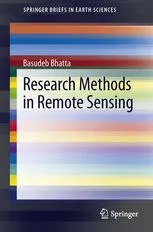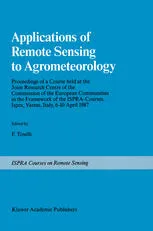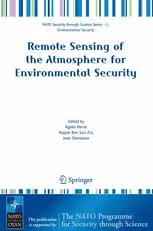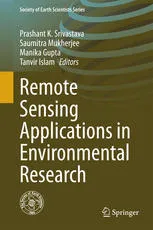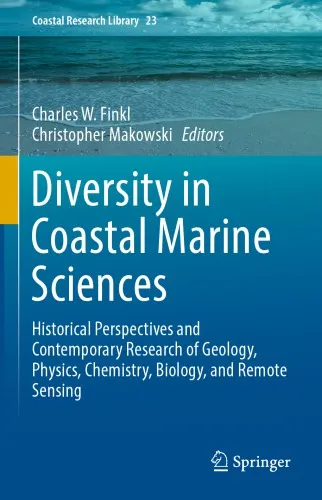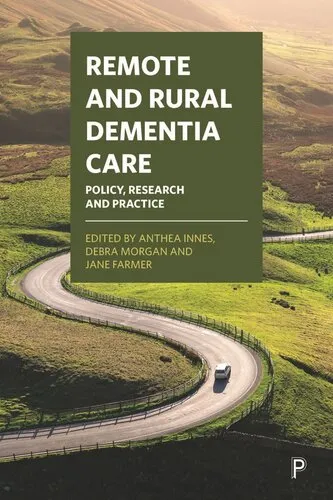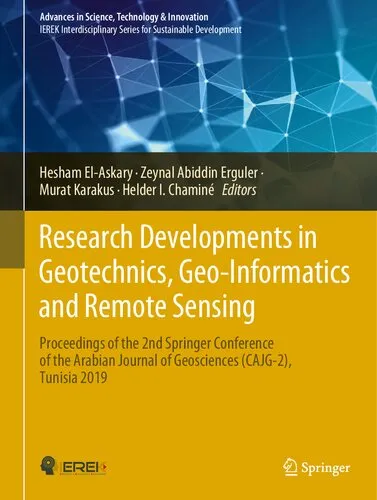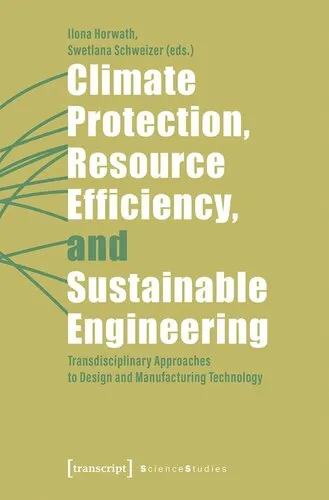Socio-Environmental Research in Latin America: Interdisciplinary Approaches Using GIS and Remote Sensing Frameworks
4.0
Reviews from our users

You Can Ask your questions from this book's AI after Login
Each download or ask from book AI costs 2 points. To earn more free points, please visit the Points Guide Page and complete some valuable actions.Related Refrences:
Introduction
Welcome to "Socio-Environmental Research in Latin America: Interdisciplinary Approaches Using GIS and Remote Sensing Frameworks"—an exploration into the dynamic interplay of society and environment within one of the world's most vibrant regions. In an era where both environmental resilience and social transformations are of paramount concern, this book serves as a comprehensive guide to understanding Latin America's socio-environmental landscapes through cutting-edge technologies and interdisciplinary strategies.
Detailed Summary of the Book
This book provides a thorough examination of socio-environmental research methodologies in Latin America by leveraging Geographic Information Systems (GIS) and remote sensing frameworks. The research focuses on the integration of these technological tools to understand complex environmental and social dynamics across diverse ecosystems, ranging from the Amazon rainforest to the Andean mountains.
Each chapter delves into distinct aspects of socio-environmental challenges such as deforestation, urban expansion, climate change, and resource management. By utilizing visual data and geospatial analysis, the book offers an innovative approach to tackling these issues. Through case studies, it showcases successful applications of GIS and remote sensing, alongside the challenges faced in data collection, interpretation, and policy implementation.
Interdisciplinary collaboration is central to the book, emphasizing the synergy between ecology, sociology, economics, and geosciences. Readers will gain insights into how these fields merge to provide comprehensive solutions to pressing issues, fostering sustainable development and social equity.
Key Takeaways
- Integration of GIS and remote sensing as powerful tools in socio-environmental research.
- The importance of interdisciplinary approaches to address complex societal and environmental challenges.
- Case studies illustrating successful applications and pitfalls in using technological frameworks.
- Strategies to overcome obstacles in data collection and interpretation.
- Guidance on policy implications and the path towards sustainable development in Latin America.
Famous Quotes from the Book
"In the heart of Latin America, where biodiversity meets cultural diversity, lies the key to sustainable development through the lenses of technology and interdisciplinarity."
"The fusion of GIS and remote sensing with social sciences creates a lens through which we can foresee and forestall socio-environmental challenges."
Why This Book Matters
"Socio-Environmental Research in Latin America: Interdisciplinary Approaches Using GIS and Remote Sensing Frameworks" is crucial for policymakers, researchers, and environmentalists dedicated to crafting sustainable solutions in an ever-changing world. As environmental crises such as deforestation and climate change continue to escalate, understanding the intricate links between human activity and natural landscapes becomes increasingly essential.
The Latin American context offers a unique tapestry of challenges and opportunities due to its ecological diversity and socio-political dynamics. This book empowers readers with the knowledge and tools necessary to harness advanced geospatial technologies, making informed decisions that consider both ecological integrity and the well-being of local communities. By bridging the gap between technology and social science, this work lays the groundwork for a future where development is synonymous with sustainability.
Free Direct Download
You Can Download this book after Login
Accessing books through legal platforms and public libraries not only supports the rights of authors and publishers but also contributes to the sustainability of reading culture. Before downloading, please take a moment to consider these options.
Find this book on other platforms:
WorldCat helps you find books in libraries worldwide.
See ratings, reviews, and discussions on Goodreads.
Find and buy rare or used books on AbeBooks.
1474
بازدید4.0
امتیاز0
نظر98%
رضایتReviews:
4.0
Based on 0 users review
Questions & Answers
Ask questions about this book or help others by answering
No questions yet. Be the first to ask!
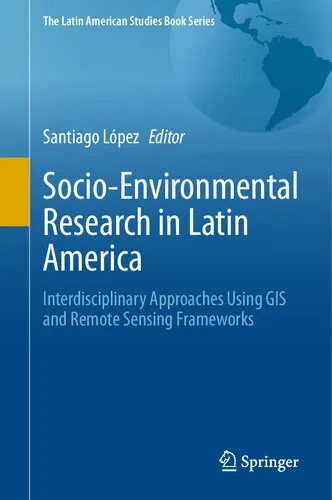
![Unleashing the Power of UX Analytics: Proven techniques and strategies for uncovering user insights [Team-IRA] [True PDF]](https://s3.refhub.ir/images/thumb/Unleashing_the_Power_of_UX_Analytics__Proven__9372.webp)
